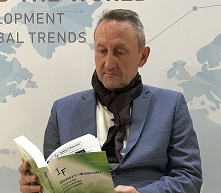Modern ideas about religion affect not only its “classical” forms (traditional, non-traditional, new religious movements, etc.), but also, with the light hand of the Enlightenment philosopher J.J. Rousseau, its secular quasi-form – civil religion. Based on this logic, once purely religious content, for example, Judeo-Christian messianism, in the process of evolution can receive secular aspects of its existence and act as a civil religion. “As a secularized ‘messianic idea’, the biblical concept of the messiah was further developed in post-Christian culture”, – a modern researcher A.I. Kyrlezhev noted, – “where it began to mean a special historical mission, which is attributed to a nation, class or individual, whose vocation is to bring humanity to final harmony, similar to the idea of religious salvation” [Kyrlezhev, 2001, 537]. As a result, in terms of their content and functional orientation, such socio-political or nationally mythologized messianic ideas are pseudo- or quasi-religious in nature, which requires a search for non-traditional approaches to solving problems of the philosophy of religion.
Keywords: civil religion, secular quasi-religion, religious movements, culture, prophecy, social utopianism, socialism, communism
DOI: 10.22250/20728662_2022_1_92
About the authors
 |
Vladimir M. Storchak – DSc (Philosophy), Professor of the Department of State-Confessional Relations, |
 |
Olga A. Ogorodnikova – PhD (History), Assistant Professor of the Department of General and Russian History, Institute of Humanities, Moscow City University; |
 |
Marina V. Storchak – Post-graduate student of the Department of state-confessional relations, |






